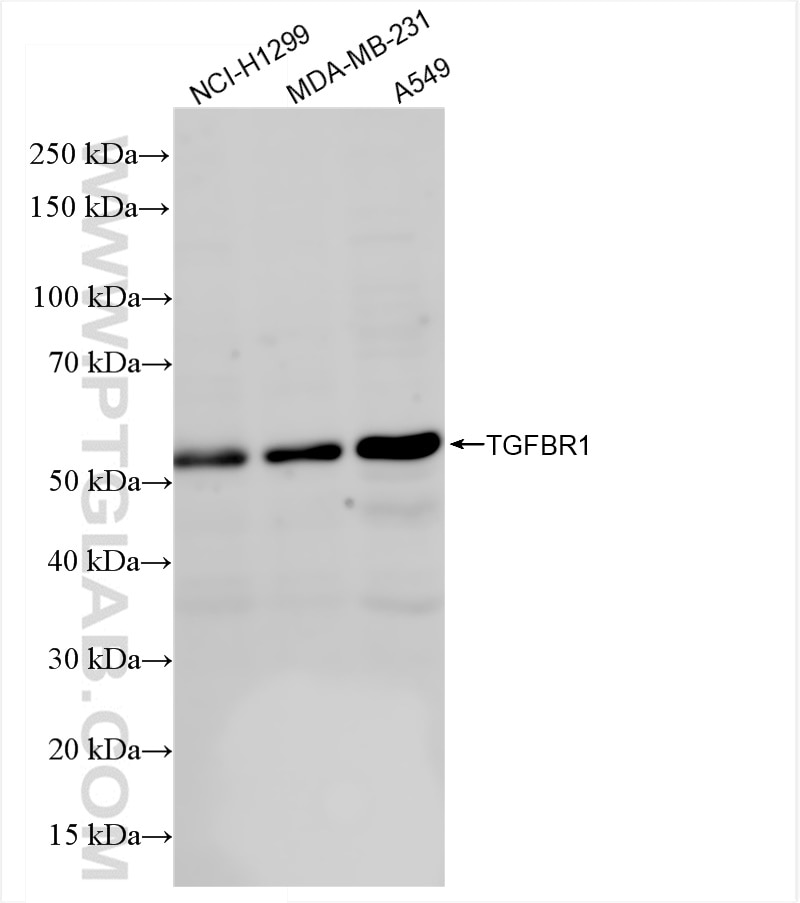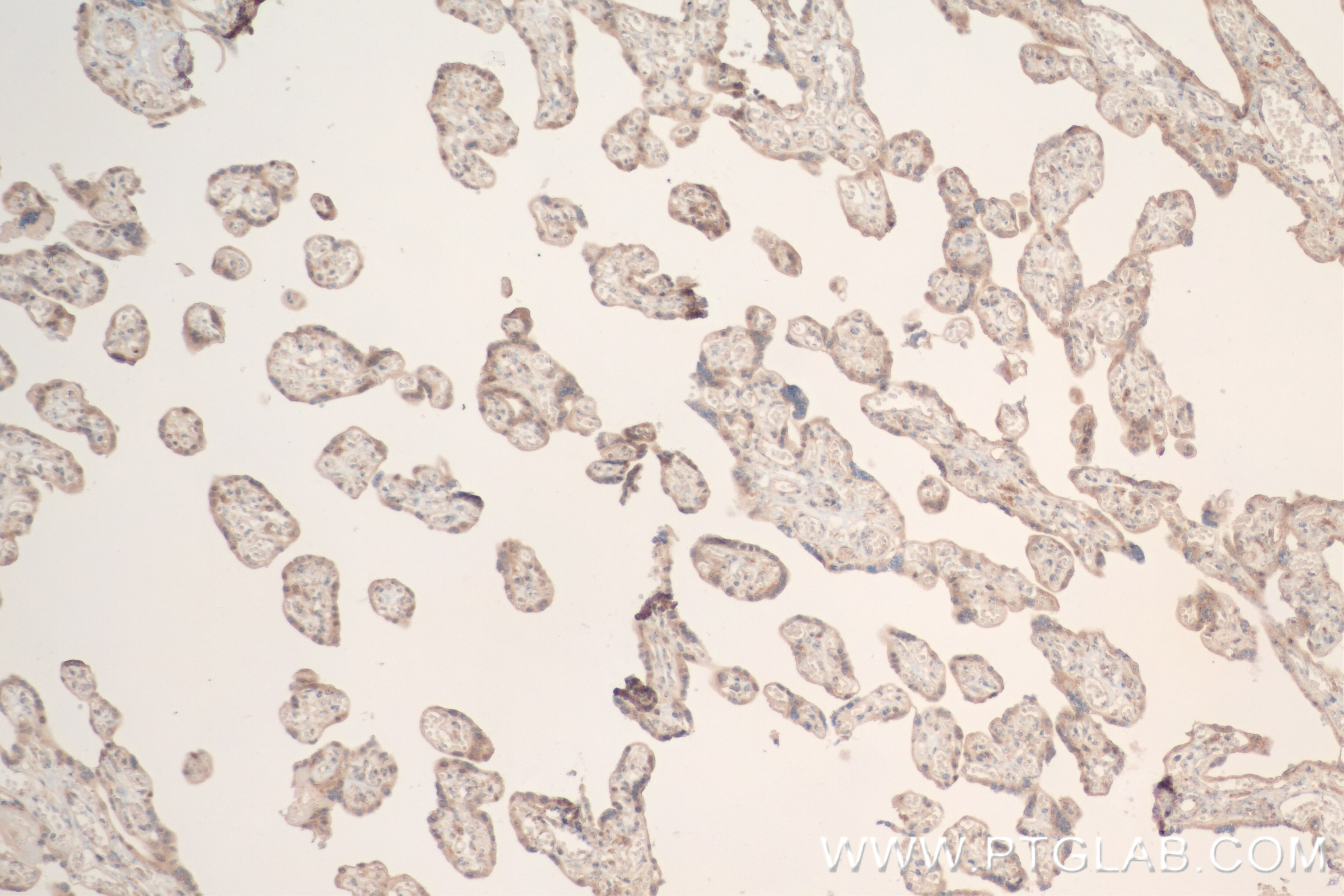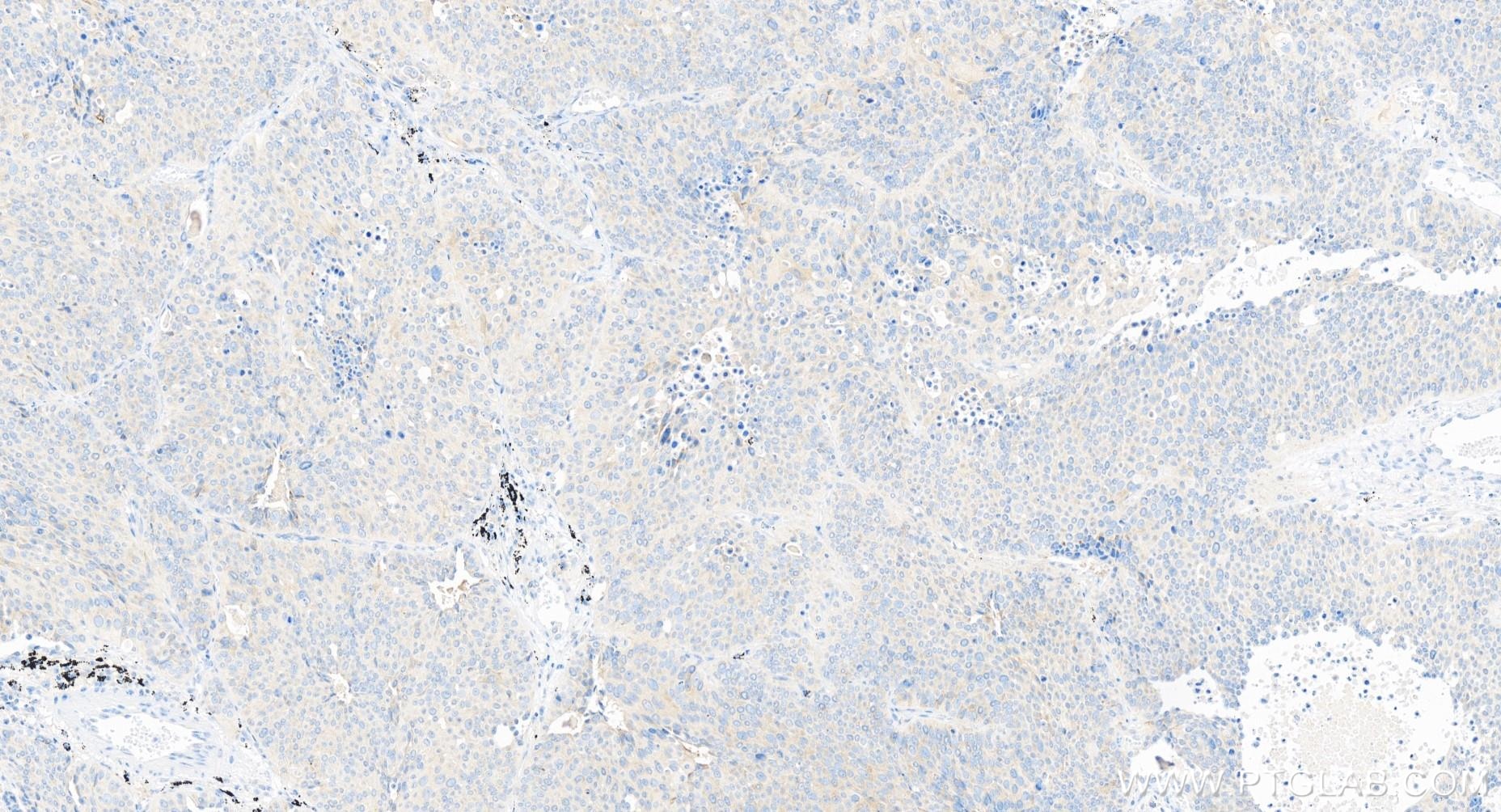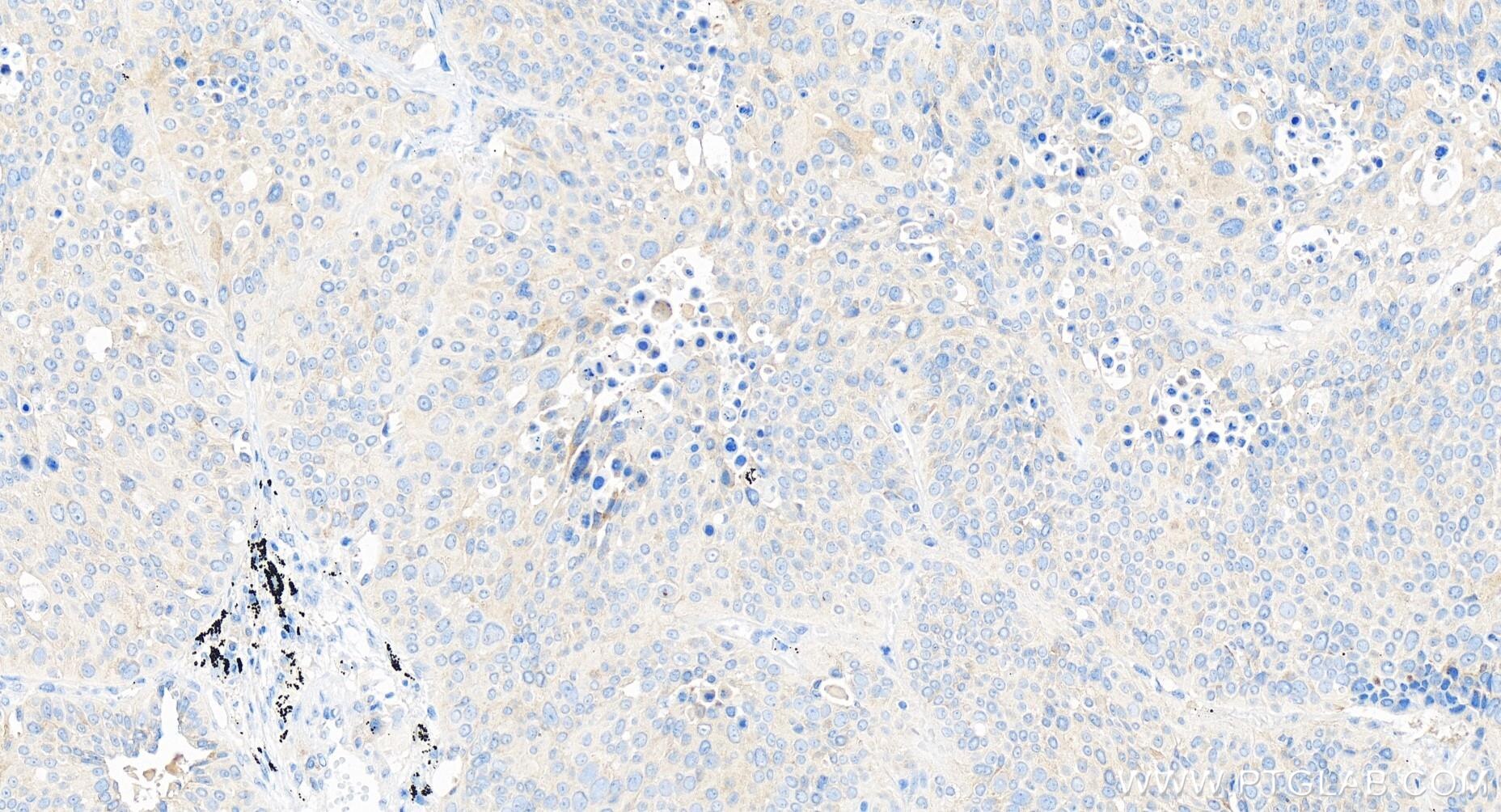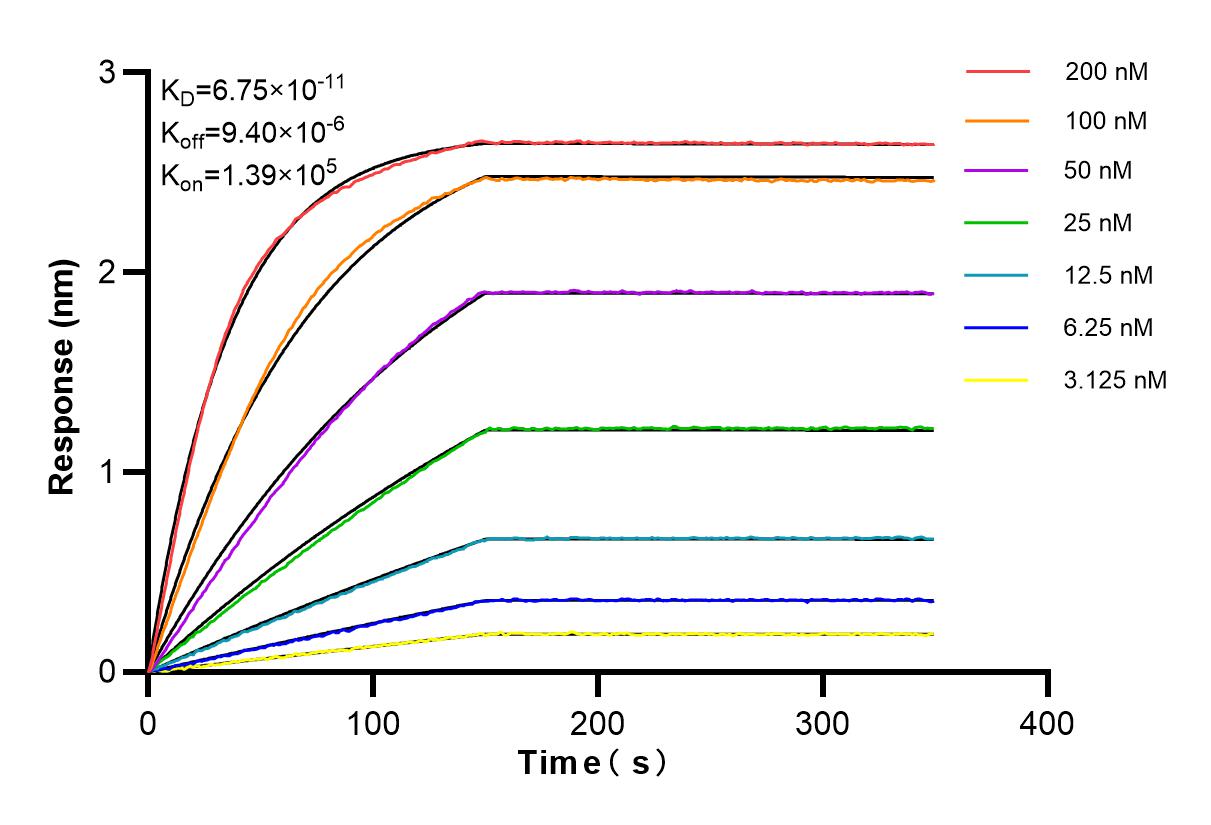Tested Applications
| Positive WB detected in | NCI-H1299 cells, MDA-MB-231 cells, A549 cells |
| Positive IHC detected in | human lung cancer tissue, human placenta tissue Note: suggested antigen retrieval with TE buffer pH 9.0; (*) Alternatively, antigen retrieval may be performed with citrate buffer pH 6.0 |
Recommended dilution
| Application | Dilution |
|---|---|
| Western Blot (WB) | WB : 1:1000-1:4000 |
| Immunohistochemistry (IHC) | IHC : 1:200-1:800 |
| It is recommended that this reagent should be titrated in each testing system to obtain optimal results. | |
| Sample-dependent, Check data in validation data gallery. | |
Product Information
84453-1-RR targets TGFBR1 in WB, IHC, ELISA applications and shows reactivity with human samples.
| Tested Reactivity | human |
| Host / Isotype | Rabbit / IgG |
| Class | Recombinant |
| Type | Antibody |
| Immunogen | TGFBR1 fusion protein Ag31620 Predict reactive species |
| Full Name | transforming growth factor, beta receptor 1 |
| Calculated Molecular Weight | 56KD |
| Observed Molecular Weight | 56 kDa |
| GenBank Accession Number | NM_004612 |
| Gene Symbol | TGFBR1 |
| Gene ID (NCBI) | 7046 |
| RRID | AB_3671979 |
| Conjugate | Unconjugated |
| Form | Liquid |
| Purification Method | Protein A purfication |
| UNIPROT ID | P36897 |
| Storage Buffer | PBS with 0.02% sodium azide and 50% glycerol , pH 7.3 |
| Storage Conditions | Store at -20°C. Stable for one year after shipment. Aliquoting is unnecessary for -20oC storage. 20ul sizes contain 0.1% BSA. |
Background Information
TGFBR1 (TGF-beta receptor type-1) encodes a serine/threonine kinase receptor for transforming growth factor-beta. TGFB1, TGFB2 and TGFB3 signals are transduced from the cell surface to the cytoplasm and regulate lots of physiological and pathological processes including cell cycle arrest in epithelial and hematopoietic cells, control of mesenchymal cell proliferation and differentiation, wound healing, extracellular matrix production, immunosuppression and carcinogenesis. Mutations in both TGFBR2 and TGFBR1 were associated with early onset and aggressive thoracic aortic disease with MFS-like skeletal features, but also hypertelorism, craniosynostosis, developmental delay, cleft palate and bifid uvula, congenital heart disease and aneurysms, and dissections throughout the arterial tree with marked arterial tortuosity (PMID: 15731757, PMID: 27879313).
Protocols
| Product Specific Protocols | |
|---|---|
| WB protocol for TGFBR1 antibody 84453-1-RR | Download protocol |
| IHC protocol for TGFBR1 antibody 84453-1-RR | Download protocol |
| Standard Protocols | |
|---|---|
| Click here to view our Standard Protocols |
